- Home
- Suzanne Collins
The Ballad of Songbirds and Snakes Page 2
The Ballad of Songbirds and Snakes Read online
Page 2
As he turned onto Scholars Road, he tried to measure his pace. He wanted to arrive on time, but cool and composed, not a sweaty mess. This reaping day, like most, was shaping up to be a scorcher. But what else could you expect on July 4th? He felt grateful for the perfume of his grandmother’s rose, as his warming shirt was giving off a faint scent of potatoes and dead marigolds.
As the finest secondary school in the Capitol, the Academy educated the offspring of the prominent, wealthy, and influential. With over four hundred students in each class, it had been possible for Tigris and Coriolanus, given their family’s long history at the school, to gain acceptance without much difficulty. Unlike the University, it was tuition-free and provided lunch and school supplies along with uniforms. Anyone who was anyone attended the Academy, and Coriolanus would need those connections as a foundation for his future.
The grand staircase up to the Academy could hold the entire student body, so it easily accommodated the stream of officials, professors, and students headed for the reaping day festivities. Coriolanus climbed it slowly, attempting a casual dignity in case he caught anyone’s eye. People knew him — or at least they had known his parents and grandparents — and there was a certain standard expected of a Snow. This year, beginning this very day, he was hoping to achieve personal recognition as well. Mentoring in the Hunger Games was his final project before graduating from the Academy in midsummer. If he gave an impressive performance as a mentor, with his outstanding academic record, Coriolanus should be awarded a monetary prize substantial enough to cover his tuition at the University.
There would be twenty-four tributes, one boy and one girl from each of the twelve defeated districts, drawn by lottery to be thrown into an arena to fight to the death in the Hunger Games. It was all laid out in the Treaty of Treason that had ended the Dark Days of the districts’ rebellion, one of the many punishments borne by the rebels. As in the past, the tributes would be dumped into the Capitol Arena, a now-dilapidated amphitheater that had been used for sports and entertainment events before the war, along with some weapons to murder one another. Viewing was encouraged in the Capitol, but a lot of people avoided it. How to make it more engaging was the challenge.
With this in mind, for the first time the tributes were to be assigned mentors. Twenty-four of the Academy’s best and brightest seniors had been tapped for the job. The specifics of what this entailed were still being worked out. There was talk of preparing each tribute for a personal interview, maybe some grooming for the cameras. Everyone agreed that if the Hunger Games were to continue, they needed to evolve into a more meaningful experience, and the pairing of the Capitol youth with the district tributes had people intrigued.
Coriolanus made his way through an entry draped in black banners, down a vaulted passage, and into cavernous Heavensbee Hall, where they would watch the broadcast of the reaping ceremony. He was by no means late, but the hall was already humming with faculty and students and a number of Games officials who were not required for the opening day’s broadcast.
Avoxes wove through the crowd with trays of posca, a concoction of watery wine laced with honey and herbs. It was an intoxicating version of the sour stuff that had sustained the Capitol through the war, supposedly fending off illness. Coriolanus took a goblet and swished a little of the posca around his mouth, hopefully rinsing away any trace of cabbage breath. But he only allowed himself one swallow. It was stronger than most people thought, and in previous years he had seen upperclassmen make complete fools of themselves by imbibing too deeply.
The world still thought Coriolanus rich, but his only real currency was charm, which he spread liberally as he made his way through the crowd. Faces lit up as he gave friendly hellos to students and teachers alike, asking about family members, dropping compliments here and there.
“Your lecture on district retaliation haunts me.”
“Love the bangs!”
“How did your mother’s back surgery go? Well, tell her she’s my hero.”
He traveled past the hundreds of cushioned chairs set up for the occasion and onto the dais, where Satyria was regaling a mix of Academy professors and Games officials with some wild story. Although he only caught the last line — “Well, I said, ‘I’m sorry about your wig, but you were the one who insisted on bringing a monkey!’” — he dutifully joined in the laughter that followed.
“Oh, Coriolanus,” Satyria drawled as she waved him over. “Here’s my star pupil.” He gave her the expected kiss on the cheek and registered that she was several glasses of posca ahead of him. Really, she needed to get her drinking under control, although the same thing could be said for half the adults he knew. Self-medication was a citywide epidemic. Still, she was amusing and not overly uptight, one of the few professors who allowed students to call them by their first names. She drew back a bit and surveyed him. “Beautiful shirt. Where did you get such a thing?”
He looked at the shirt as if surprised by its existence and gave the shrug of a young man of limitless options.
“The Snows have deep closets,” he said airily. “I was trying for respectful yet celebratory.”
“And so it is. What are these cunning buttons?” Satyria asked, fingering one of the cubes on his cuff. “Tesserae?”
“Are they? Well, that explains why they remind me of the maid’s bathroom,” Coriolanus responded, drawing a chuckle from her friends. This was the impression he fought to sustain. A reminder that he was the rare person who had a maid’s bathroom — let alone one tiled with tesserae — tempered with a self-deprecating joke about his shirt.
He nodded at Satyria. “Lovely gown. It’s new, isn’t it?” He could tell at a glance that it was the same dress she always wore to the reaping ceremony, refurbished with tufts of black feathers. But she had validated his shirt, and he needed to return the favor.
“I had it done especially for today,” she said, embracing the question. “Tenth anniversary and all that.”
“Elegant,” he said. All in all, they were not a bad team.
His pleasure drained as he spotted the gymnasium mistress, Professor Agrippina Sickle, using her muscular shoulders to maneuver her way through the crowd. Behind her was her aide, Sejanus Plinth, who was carrying the ornamental shield Professor Sickle insisted on holding for the group photo each year. It had been awarded to her at the end of the war for successfully overseeing Academy safety drills during the bombings.
It was not the shield that caught Coriolanus’s attention but Sejanus’s outfit, a soft charcoal gray suit with a blinding white shirt offset by a paisley tie, cut to add flow to his tall, angular frame. The ensemble was stylish, brand-new, and smelling of money. War profiteering, to be exact. Sejanus’s father was a District 2 manufacturer who had sided with the president. He had made such a fortune off munitions that he’d been able to buy his family’s way into a life in the Capitol. The Plinths now enjoyed privileges that the oldest, most powerful families had earned over generations. It was unprecedented that Sejanus, a district-born boy, was a student at the Academy, but his father’s lavish donation had allowed for much of the school’s postwar reconstruction. A Capitol-born citizen would have expected a building to be renamed for them. Sejanus’s father had only requested an education for his son.
For Coriolanus, the Plinths and their kind were a threat to all he held dear. The newly rich climbers in the Capitol were chipping away at the old order simply by virtue of their presence. It was particularly vexing because the bulk of the Snow family fortune had also been invested in munitions — but in District 13. Their sprawling complex, blocks and blocks of factories and research facilities, had been bombed to dust. District 13 had been nuked, and the entire area still emitted unlivable levels of radiation. The center of the Capitol’s military manufacturing had shifted to District 2 and fallen right into the Plinths’ laps. When news of District 13’s demise had reached the Capitol, Coriolanus’s grandmother had publi
cly brushed it off, saying it was fortunate that they had plenty of other assets. But they didn’t.
Sejanus had arrived on the school playground ten years ago, a shy, sensitive boy cautiously surveying the other children with a pair of soulful brown eyes much too large for his strained face. When word had gotten out that he’d come from the districts, Coriolanus’s first impulse had been to join his classmates’ campaign to make the new kid’s life a living hell. On further reflection, he’d ignored him. If the other Capitol children took this to mean that baiting the district brat was beneath him, Sejanus took it as decency. Neither take was quite accurate, but both reinforced the image of Coriolanus as a class act.
A woman of formidable stature, Professor Sickle cruised into Satyria’s circle, scattering her inferiors to the four winds. “Good morning, Professor Click.”
“Oh, Agrippina, good. You remembered your shield,” said Satyria, accepting a firm handshake. “It worries me that the young people will forget the real meaning of the day. And, Sejanus. How smart you look.”
Sejanus attempted a bow, sending a wayward lock of hair into his eyes. The cumbersome shield caught him in the chest.
“Too smart,” said Professor Sickle. “I told him if I wanted a peacock, I’d call the pet store. They should all be in their uniforms.” She eyed Coriolanus. “That’s not terrible. Your father’s old mess dress shirt?”
Was it? Coriolanus had no idea. A vague memory of his father in a dashing evening suit dripping in medals came to him. He decided to play out the hand. “Thank you for noticing, Professor. I had it redone so as not to suggest I’d seen combat myself. But I wanted him here with me today.”
“Very fitting,” said Professor Sickle. Then she directed her attention to Satyria and her views on the latest deployment of Peacekeepers, the nation’s soldiers, to District 12, where the coal miners were failing to produce their quotas.
With their teachers engaged, Coriolanus nodded at the shield. “Getting a workout this morning?”
Sejanus gave a wry smile. “Always an honor to be of service.”
“That’s a fine polish job,” Coriolanus replied. Sejanus tensed at the implication that he was, what, a suck-up? A lackey? Coriolanus let it build a moment before he diffused it. “I should know. I do all Satyria’s wine goblets.”
Sejanus relaxed at that. “Really?”
“No, not really. But only because she hasn’t thought of it,” said Coriolanus, seesawing between disdain and camaraderie.
“Professor Sickle thinks of everything. She doesn’t hesitate to call me, day or night.” Sejanus looked as if he might continue, then just sighed. “And, of course, now that I’m graduating, we’re moving closer to the school. Perfect timing, as usual.”
Coriolanus suddenly felt wary. “Whereabouts?”
“Somewhere on the Corso. A lot of those grand places will be going on the market soon. Owners not being able to afford the taxes, or some such, my father said.” The shield scraped the floor, and Sejanus hefted it up.
“They don’t tax properties in the Capitol. Only in the districts,” said Coriolanus.
“It’s a new law,” Sejanus told him. “To get more money for rebuilding the city.”
Coriolanus tried to tamp down the panic rising inside him. A new law. Instating a tax on his apartment. For how much? As it was, they barely eked out a living on Tigris’s pittance, the tiny military pension his grandmother received for her husband’s service to Panem, and his own dependent benefits as the child of a slain war hero, which would cease on graduation. If they couldn’t pay the taxes, would they lose the apartment? It was all they had. Selling the place would be of no help; he knew his grandmother had borrowed every cent on it she could. If they sold, there would be next to nothing left. They would have to move to some obscure neighborhood and join the grimy ranks of everyday citizens, without status, without influence, without dignity. The disgrace would kill his grandmother. It would be kinder to toss her out the window of the penthouse. At least that would be quick.
“You all right?” Sejanus peered at him, puzzled. “You just went white as a sheet.”
Coriolanus regained his composure. “I think it’s the posca. Turns my stomach.”
“Yeah,” Sejanus agreed. “Ma was always forcing it down me during the war.”
Ma? Was Coriolanus’s place about to be usurped by someone who referred to his mother as “Ma”? The cabbage and posca threatened to make a reappearance. He took a deep breath and forced his stomach to hang on to it, resenting Sejanus more than he had since the well-fed district boy with the cloddish accent first wandered up to him, clutching a bag of gumdrops.
Coriolanus heard a bell ringing and saw his fellow students converging at the front of the dais.
“I guess it’s time to assign us tributes,” Sejanus said glumly.
Coriolanus followed him to where a special section of chairs, six rows by four, had been set up for the mentors. He tried to push the apartment crisis out of his head, to focus on the crucial task at hand. More than ever, it was essential that he excel, and to excel, he must be assigned a competitive tribute.
Dean Casca Highbottom, the man credited with the creation of the Hunger Games, was overseeing the mentor program personally. He presented himself to the students with all the verve of a sleepwalker, dreamy-eyed and, as usual, doped up on morphling. His once-fine physique was shrunken and draped with sagging skin. The close-clipped precision of a recent haircut and crisp suit only threw his deterioration into relief. Due to his fame as the Games’ inventor, he still had a tenuous hold on his position, but there were rumors that the Academy Board was losing patience.
“Ho there,” he slurred, waving a crumpled piece of paper over his head. “Reading the things off now.” The students hushed, trying hard to hear him above the din of the hall. “Read you a name, then you who gets that one. Right? So, fine. District One, boy, goes to . . .” Dean Highbottom squinted at the paper, trying hard to focus. “Glasses,” he mumbled. “Forgot them.” Everyone stared at his glasses, already perched on his nose, and waited while his fingers found them. “Ah, here we go. Livia Cardew.”
Livia’s pointed little face broke into a grin and she punched the air in victory, shouting “Yes!” in her shrill voice. She had always been prone to gloating. As if the plum assignment was solely a reflection on her, and not on her mother running the largest bank in the Capitol.
Coriolanus felt increasing desperation as Dean Highbottom stumbled through the list, assigning each district’s boy and girl a mentor. After ten years, a pattern had emerged. The better-fed, more Capitol-friendly districts of 1 and 2 produced more victors, with the fishing and farming tributes from 4 and 11 also being contenders. Coriolanus had hoped for either a 1 or a 2, but neither was assigned to him, which was made more insulting when Sejanus scored the District 2 boy. District 4 passed without mention of his name, and his last real chance for a victor — the District 11 boy — was assigned to Clemensia Dovecote, daughter of the energies secretary. Unlike Livia, Clemensia received news of her good fortune with tact, pushing her sheet of raven hair over her shoulder as she studiously made note of her tribute in her binder.
Something was amiss when a Snow, who also happened to be one of the Academy’s high-honor students, had gone unrecognized. Coriolanus was beginning to think they had forgotten him — perhaps they were giving him some special position? — when, to his horror, he heard Dean Highbottom mumble, “And last but least, District Twelve girl . . . she belongs to Coriolanus Snow.”
The District 12 girl? Could there be a bigger slap in the face? District 12, the smallest district, the joke district, with its stunted, joint-swollen kids that always died in the first five minutes, and not only that . . . but the girl? Not that a girl couldn’t win, but in his mind the Hunger Games were largely about brute force, and the girls were naturally smaller than the boys and therefore at a disadvantage. Coriol
anus had never been a particular favorite of Dean Highbottom, whom he jokingly called High-as-a-Kite-Bottom among his friends, but he had not expected such a public humiliation. Had the nickname gotten back to him? Or was this just an acknowledgment that, in the new world order, the Snows were fading into insignificance?
He could feel the blood burning his cheeks as he tried to remain composed. Most of the other students had risen and were chatting among themselves. He must join them, pretend this was of no consequence, but he seemed incapable of movement. The most he could manage was to turn his head to the right, where Sejanus still sat beside him. Coriolanus opened his mouth to congratulate him but stopped at the barely concealed misery on the other boy’s face.
“What is it?” he asked. “Aren’t you happy? District Two, the boy — that’s the pick of the litter.”
“You forget. I’m part of that litter,” said Sejanus hoarsely.
Coriolanus let that sink in. So ten years in the Capitol and the privileged life it provided had been wasted on Sejanus. He still thought of himself as a district citizen. Sentimental nonsense.
Sejanus’s forehead creased in consternation. “I’m sure my father requested it. He’s always trying to get my mind right.”
No doubt, thought Coriolanus. Old Strabo Plinth’s deep pockets and influence were respected if his lineage was not. And while the mentorships were supposedly based on merit, strings clearly had been pulled.

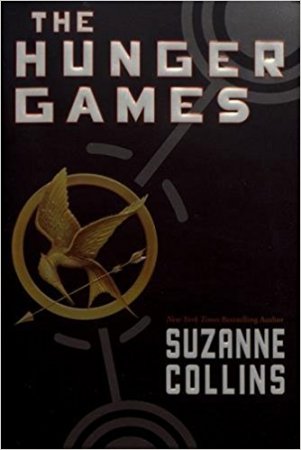 The Hunger Games
The Hunger Games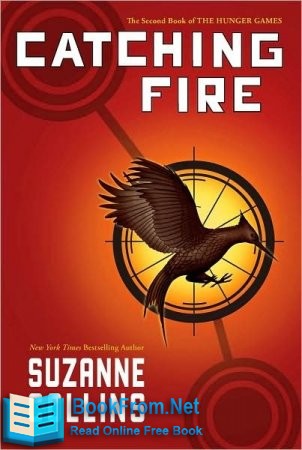 Catching Fire
Catching Fire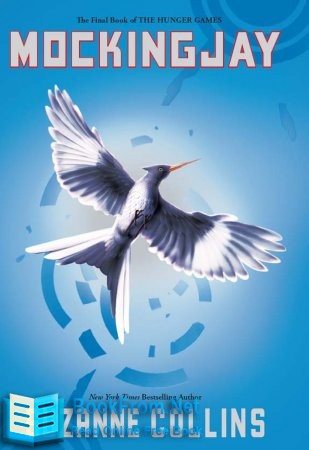 Mockingjay
Mockingjay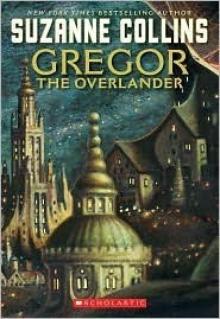 Gregor the Overlander
Gregor the Overlander Gregor and the Curse of the Warmbloods
Gregor and the Curse of the Warmbloods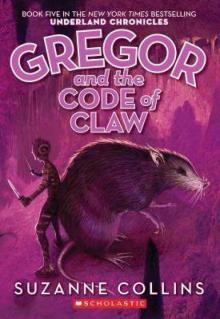 Gregor and the Code of Claw
Gregor and the Code of Claw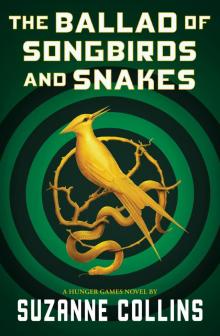 The Ballad of Songbirds and Snakes
The Ballad of Songbirds and Snakes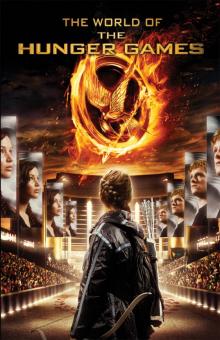 The World of the Hunger Games
The World of the Hunger Games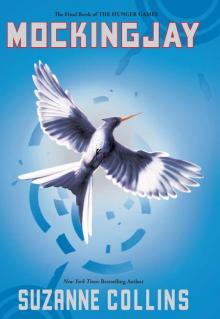 Mockingjay (The Final Book of The Hunger Games)
Mockingjay (The Final Book of The Hunger Games) The Underland Chronicles: Books 1-5 Paperback Box Set
The Underland Chronicles: Books 1-5 Paperback Box Set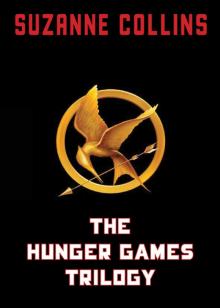 The Hunger Games Trilogy
The Hunger Games Trilogy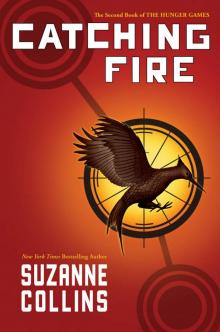 Hunger Games 02 - Catching Fire
Hunger Games 02 - Catching Fire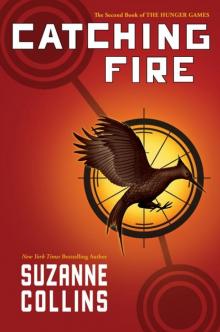 Cathing Fire thg-2
Cathing Fire thg-2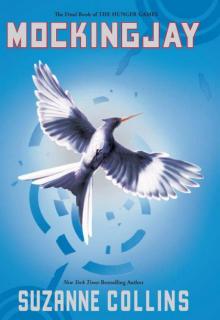 Hunger Games 03-Mockingjay
Hunger Games 03-Mockingjay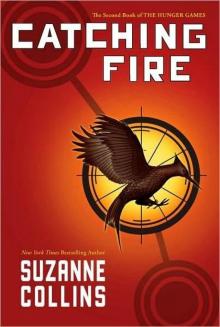 Hunger Games 2 - Catching Fire
Hunger Games 2 - Catching Fire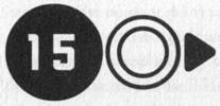 Hunger Games 01 - The Hunger Games
Hunger Games 01 - The Hunger Games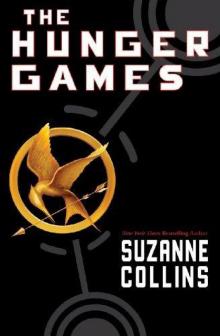 Hunger Games 01-The Hunger Games
Hunger Games 01-The Hunger Games